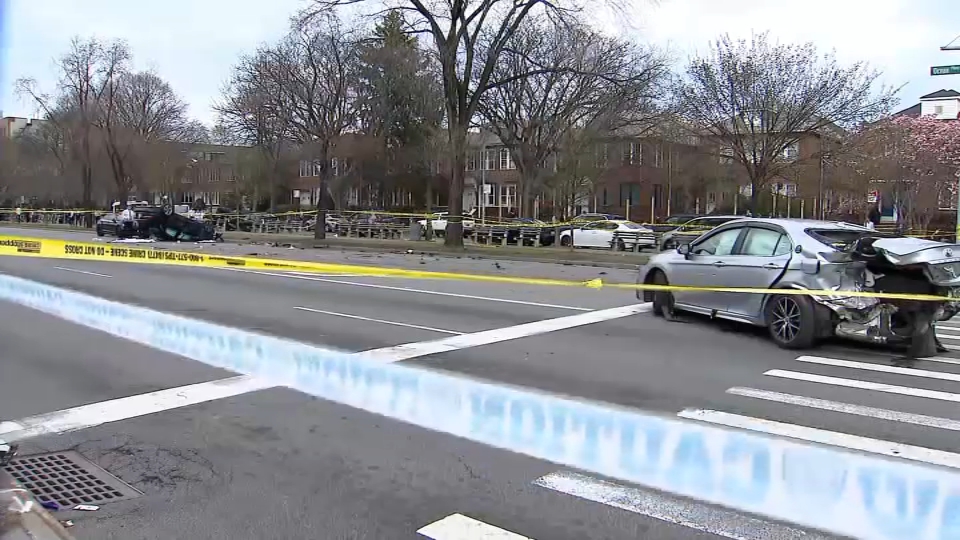Andrew Siff and Rana Novini have team coverage of the coronavirus pandemic.
What to Know
- The city's implementation of the Open Streets and Open Restaurants initiatives during the course of the ongoing pandemic was so successful, it plans to make them permanent, year-round programs, Mayor Bill de Blasio announced Friday.
- The Open Restaurants program, which rolled out this summer, expands seating options for restaurants on select restaurant corridors citywide by temporarily closing streets to traffic to create outdoor dining space.
- Meanwhile, the Open Streets initiative was successfully introduced late spring. The idea was to provide pedestrians enough room to enjoy the outdoors while adhering to social distancing norms by closing certain streets to traffic.
The city's implementation of the Open Streets and Open Restaurants initiatives during the course of the ongoing pandemic was so successful, it plans to make them permanent, year-round programs, Mayor Bill de Blasio announced Friday.
The Open Restaurants program, which rolled out this summer, expands seating options for restaurants on select restaurant corridors citywide by temporarily closing streets to traffic to create outdoor dining space.
The initiative rolled out in July and initially featured nearly two dozen of New York City's Open Streets will now feature Open Restaurants summer weekends. It expanded since then to feature more streets and restaurants.
The idea behind the initiative was to allow the restaurant industry to open safely outdoors, while indoor dining was prohibited, during the pandemic. Although indoor dining has since rolled out, it has done so at limited capacity, with restaurants still using outdoor space to seat customers.
The mayor had been hinting at extending the outdoor dining initiative for some time, and the city hopes it will give struggling restaurants a lifeline for survival. De Blasio also said that he wants restaurants to be able to provide heating as the weather gets colder. Electrical heaters will be allowed on the sidewalk and roadways, while propane and natural gas heaters will be permitted on sidewalks only. Propane tank heaters will first need a permit from the FDNY.
"I want us to go for the gold here. I want us to really take this model and make it part of the life of New York City for years and generations to come," de Blasio told Lehrer. "We already have well over 10,000 restaurants participating, almost 100,000 jobs have been saved. And I think, I hope this is going to make it easier for restaurants to survive.
Meanwhile, the Open Streets initiative was successfully introduced late spring. The idea was to provide pedestrians enough room to enjoy the outdoors while adhering to social distancing norms by closing certain streets to traffic.
"The way we will do it is we are going to focus first on streets in and around our parks. [We are] very concerned about the streets around parks. Often times we are seeing that immediate area getting very crowded," de Blasio said at the time. "Those streets adjacent to parks are an obvious opportunity to open up more space. We are going to work together to figure out how we are going to do that."
News
De Blasio went on to explain that some other locations will see sidewalks expansion similar to what was done around Rockefeller Center during the winter holidays where the sidewalks space was opened up into the streets a bit more with proper barricades in place for safety.
"Some streets will be more local areas that aren’t necessarily going to be where you have a major attraction like a park but they are places where we can safely open up some space and have it be enforced," he said at the time.
Restaurants also will have the option to enclose their outdoor space — but if they do so, they will have to follow indoor dining capacity rules.
According to de Blasio, the city will focus first on where the need is greatest.
"So many communities that we have already identified have been already hard hit by COVID we want to be particularly sensitive to implementing these kind of steps," de Blasio said at the time, adding that it will be a joint effort between the City Council, working with the police department, transportation department, sanitation department, parks department to figure "out all the right places we can do this, but first priority are the places hardest hit and then of course figuring out where they’ll have the biggest impact where the most people are."
The mayor said that restaurants will be able to expand the outdoor space adjacent to their business as long as they have approval from the landlord.



